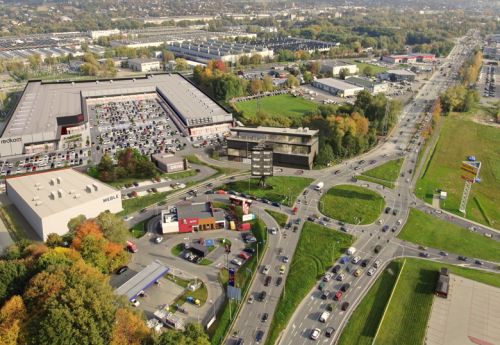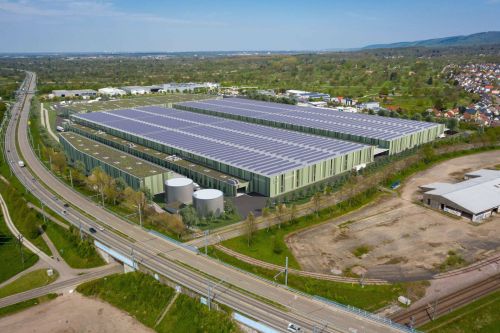No fun in the sun for investors
Stock market reportThe heat was mainly on the markets of Western Europe and the USA, so Warsaw trading activity once again remained very much under the influence of the European and American bourses. When the Greek parliament adopted its five-year savings plan - a pre-condition for obtaining help from the European Union and the International Monetary Fund - Western stock exchanges soared, turning the last week of the first half of 2011 into the best of the year so far. But what about Poland?
When the London FTSE index grew by over 5 pct during that week, Warsaw's WIG 20 went up by 0.6 pct. However, the euphoria was brief and each piece of news about the Greek parliament's problems forcing through the necessary reforms triggered more falls on the stock exchanges, with the knock-on effect of weakening the euro against the Swiss franc. The issue of a bail-out for Portugal was re-visited at the beginning of July, but it was Italy that turned out to be the real bombshell, sparking panic on the markets. The dire fiscal situation of Italy, which had not been on the radar of investors up until then, suddenly became the focus of their attention due its debt of EUR 1.8 bln - the third biggest national debt in absolute values in the world, preceded only by Japan and the US. However, the US is also giving investors food for thought - where despite it being summer a heated debate is taking place over the scope of the needed budget cuts. With the cooling of the Chinese economy - the only big economic power that has weathered the credit crunch - the global picture does not look conducive for settled markets. However, the condition of Warsaw's indexes was not too ominous - the main WIG index lost 2.6 pct while the WIG 20 fell by 4 pct, reflecting the fact that foreign investors are keener to invest in the biggest companies. After many months of sharp falls, the WIG-BUD, which lost "only" 2.3 pct, returned to relative stability. Developers' share prices dived sharply, with the price of only one company on this list growing over the period covered (Marvipol), whereas WIG-Developers suffered a slump of as much as 11 pct. This is even more surprising considering that the sales of apartments are going very well. According to a rating survey by the 'Parkiet' newspaper, Dom Development, which sold 426 apartments in the period, maintained its leading position, followed by Polnord and Robyg; whereas J.W. Construction (230 apartments) had weaker results. Developers are presently competing with each other in terms of announcements over the scramble for sites, with the most activity to be observed in the operations of commercial developers such as Echo (which has bought two former hotels from Orbis) and PA Nova, which has announced its plans to buy new land. Turning to construction companies, their falling share prices triggered an impulse to consider buying at least some of the securities of these companies. This was reflected in analysts' recommendations, where the 'buy' option is more and more frequently being given. For example, in the case of Mostostal Warszawa analysts of DI BRE Bank are expecting a yield of over 50 pct. Their faith in the bright future of the industry does not just stem from low ratings, but also from the information flowing in from (for example) Brussels, where the EU budget is being drawn up. According to this, Poland could receive EUR 80 bln over the period 2014-2020, with the beneficiaries of this largesse being construction companies to a large extent. Meanwhile, the June highlight was the acquisition of Rafaco, which specialises in the production of boilers, by PBG. The firm is to pay app. PLN 700 mln for this transaction; however, analysts are already citing the main benefit as the fact that PBG will gain an edge in the fight for big contracts from the energy sector (Rafaco's portfolio is currently worth app. PLN 2 bln).
No new companies from the development and construction sector entered Warsaw's trading floor over the period, when the primary market was dominated by the huge Jastrzębska Spółka Węglowa flotation (PLN 5 bln). However, a new player has appeared on New Connect - Religa Development, a company specialising in the construction of eco-friendly estates in Wrocław, making its debut on July 8th. (Mir)
Down in Budapest, worse in Prague
This time the Budapest stock exchange behaved better than the trading floors in Warsaw and Prague. The BUX fell over the course of the month, but only by 1.74 pct. In spite of that, the mood on the Hungarian financial market is far from perfect - the forint continues to depreciate against the Swiss franc (63 pct of borrowers in Hungary have loans denominated in Swiss currency) and on July 11th the BUX index sank to its weakest level in the last three months. But in Prague the PX slumped to its lowest level in over seven months. The index was pulled down by the banks, which make up a great deal of the weight of the PX.






















































